| Srl | Item |
| 1 |
ID:
100032
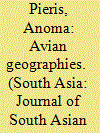

|
|
|
| 2 |
ID:
100034
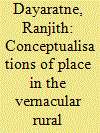

|
|
|
|
|
| Publication |
2010.
|
| Summary/Abstract |
It is well known that traditional communities relate to their settlements differently from modern ones, and that in the developing world contemporary settlements often constitute dualistic communities, holding contrasting perceptions of place. Sri Lanka's traditional communities have been fashioned by historically evolved conceptions of the world comprised of supernatural beings and their interrelationships; reverence for nature and spirits underpin everyday activities and life expectations. The monks and peasants who were the main occupants of such villages articulated their conceptions of place around the duality of the sacred and the profane, a mode of conceptualisation still embedded in everyday language and behaviour. The paper elucidates the structure and the conceptualisations of the significant places in traditional Sri Lankan villages. It discusses how they have become, with globalisation, diffused, yet remain at the core of local conceptualisations.
|
|
|
|
|
|
|
|
|
|
|
|
|
|
|
|
| 3 |
ID:
100035
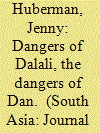

|
|
|
|
|
| Publication |
2010.
|
| Summary/Abstract |
The moral perils believed to be associated with the giving and receiving of dan (giving) have been widely noted by anthropologists of South Asia. However, among these studies of Indian giving and exchange, less attention has been devoted to exploring how and why commercial transactions become a site of moral condemnation. Drawing upon twenty months of fieldwork with the boys who operated as commission agents or dalals in the foreign tourist economy in the city of Banaras, I demonstrate how the youths regarded these earnings as morally problematic. I argue that the various condemnations of dalali (commission) were symptomatic of a set of deeper concerns regarding the impact of foreign tourism, the future of the boys and their families, and ultimately the (re)production of the socio-cultural order itself. Furthermore, I argue that narratives about the dangers of dalali took on significance because they intersected with more pervasive, highly ambivalent reactions to modernity in India. As such, the conceptions of the dangers of dalali and danprovided people with a concrete way to address social changes that seemed at once overwhelming yet inchoate.
|
|
|
|
|
|
|
|
|
|
|
|
|
|
|
|
| 4 |
ID:
100036


|
|
|
| 5 |
ID:
100037
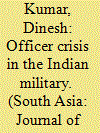

|
|
|
| 6 |
ID:
100033
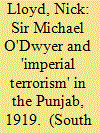

|
|
|
|
|
| Publication |
2010.
|
| Summary/Abstract |
Sir Michael O'Dwyer, the lieutenant-governor of the Punjab between 1913 and 1919, has perhaps one of the worst reputations in the history of the Raj, being commonly associated with brutality, repression and 'imperial terrorism'. In particular, his role in the administration of martial law between April and June 1919 has been heavily criticised. He has been accused of conducting coercion, torture and racial humiliation. Drawing upon archival records, including the numerous testimonies gathered by the official Government of India inquiry (the Hunter Committee), this article will reassess O'Dwyer's role in martial law, arguing that he was far more professional and sympathetic than has hitherto been assumed.
|
|
|
|
|
|
|
|
|
|
|
|
|
|
|
|